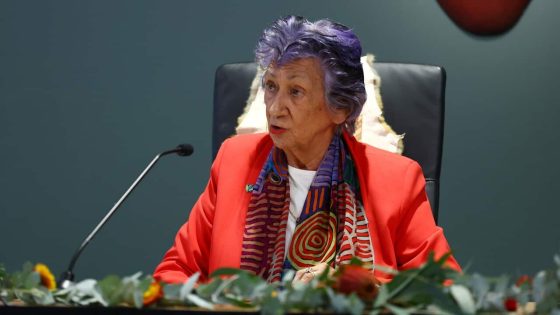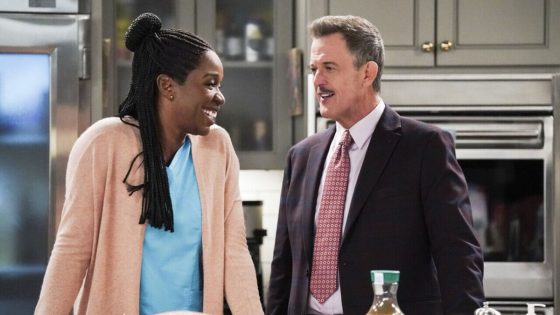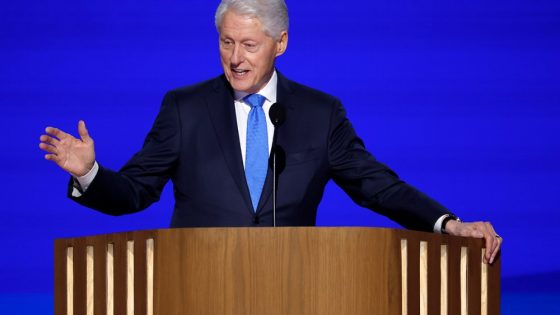The Victorian Labor government has been accused of betraying children and bending the knee to police after abandoning its plan to raise the age of criminal responsibility to 14.
Premier Jacinta Allan announced the backflip on the long-advocated reform ahead of parliament resuming on Tuesday.
The Victorian Aboriginal Legal Service (VALS) accused the Allan government of weak leadership and caving into a scare campaign run by the Herald Sun and Victoria Police.
The state government is pushing ahead with legislation to raise the current age of criminal responsibility from 10 to 12.
It had originally planned under former premier Daniel Andrews to eventually raise the age to 14 by 2027.
VACCHO (Victorian Aboriginal Community Controlled Health Organisation) said news that the government was backtracking without consultation was a “slap in the face” to the members of the Aboriginal justice caucus, who have worked with the government on the Youth Justice Bill for more than five years.
VALS chief executive Nerita Waight said the decision would make it hard for Aboriginal communities to trust the government.
“We trusted the Victorian government and we have been betrayed by their treacherous decision to abandon our children,” she said.
“Many of these politicians are parents themselves but their children will never be subjected to racist policing, never be denied access to the supports they need, and never be thrown away …
“It’s obvious that the Victorian Government has caved to a scare campaign from Victoria Police and the Herald Sun.
“Neither of them will reward the government for bending the knee.”
Dr Crystal McKinnon, VALS chair, said the decision would not help the government reach the many commitments it has made through Closing the Gap, the Aboriginal Justice Agreement, and Yoorrook, the state’s First Nations truth-telling body.
“At Yoorrook we heard heart-wrenching accounts from young Aboriginal people who have experienced cruel police and prison practices,” she said.
“We all owe it to them to ensure that their efforts result in transformation of these systems.”
In September 2023 the Yoorrook Justice Commission delivered its criminal justice system reform recommendations to the Victorian government, including raising the age of criminal responsibility to 14 without exceptions.
This followed a year-long inquiry into the systemic injustices faced by First Peoples in Victoria’s child protection and criminal justice systems.
It included evidence from scores of First Peoples experts, organisations and community members, as well as government bureaucrats, ministers and the Attorney-General.
“Twelve is where it will stay,” Ms Allan told reporters.
“This decision has been made at a different time by a different government with a different premier.”
Professor Eleanor Bourke, Yoorrook chair, said the government’s promise to raise the age to 14 was seen as a critical step towards rectifying historical injustices faced by First Peoples and called on Labor to revisit the decision.
“We cannot underestimate the tsunami of disappointment that this announcement will create for First Peoples communities,” she said.
“This decision is so contrary to the evidence it is difficult to comprehend – evidence heard by Yoorrook and countless other inquiries, commissions and coronial inquests over a period of decades.
“Victoria’s current laws not only exacerbate existing inequalities; they fail to address the root causes of offending behaviour – poverty, trauma, and lack of access to support services.”
Intervention, not criminalistion
Adjunct Professor Sue-Anne Hunter, Yoorrook deputy chair said criminalising children doesn’t rehabilitate them, it puts them on a pipeline to the adult justice system and a life of disadvantage and injustice.
They need therapeutic support, not a criminal record.
“Every number is a person, with a family and their own story and experiences,” she said.
“Many Aboriginal young people who come into contact with police have suffered intergenerational trauma and injustice.
“They need therapeutic support, not a criminal record.”
Instead of criminalisation, VACCHO said the focus should be on interventions that address underlying causes of offending behaviour, such as mental health care, tackling racism in schools and investing in culturally appropriate services that empower Aboriginal children and families.
“Our Boorai (children) belong in schools, not in juvenile detention and at the mercy of the criminal justice system,” VACCHO chief executive Dr Jill Gallagher said.
In Victoria Indigenous children are more than 10 times likely than other children to be in detention.
The National Agreement on Closing the Gap, signed by the federal and all state and territory governments includes a target that aims to reduce the rate of Indigenous children in detention by at least 30 per cent by 2031.
The national framework on Closing the Gap also includes a commitment by governments to work with First Nations organisations.
Children as young as 10 can be charged, convicted and imprisoned across Australia, except in the Northern Territory, which raised the age of criminal responsibility to 12 in August 2023.
The ACT passed legislation to raise the age to 14 by 2025 with some exceptions, while Tasmania has pledged to raise the minimum age of criminal detention to 14.
Victoria is also re-introducing charges of committing an offence while on bail for adults and children – laws that were only repealed in March.
It will also make bail harder to get.
“Bail is a privilege, not a given,” Ms Allan said.
VALS said they are also very concerned that the Youth Justice Bill expands the use of isolation in youth prisons and that the bill now “represents a government without a soul trying to buy off everyone and pleasing no one”.




